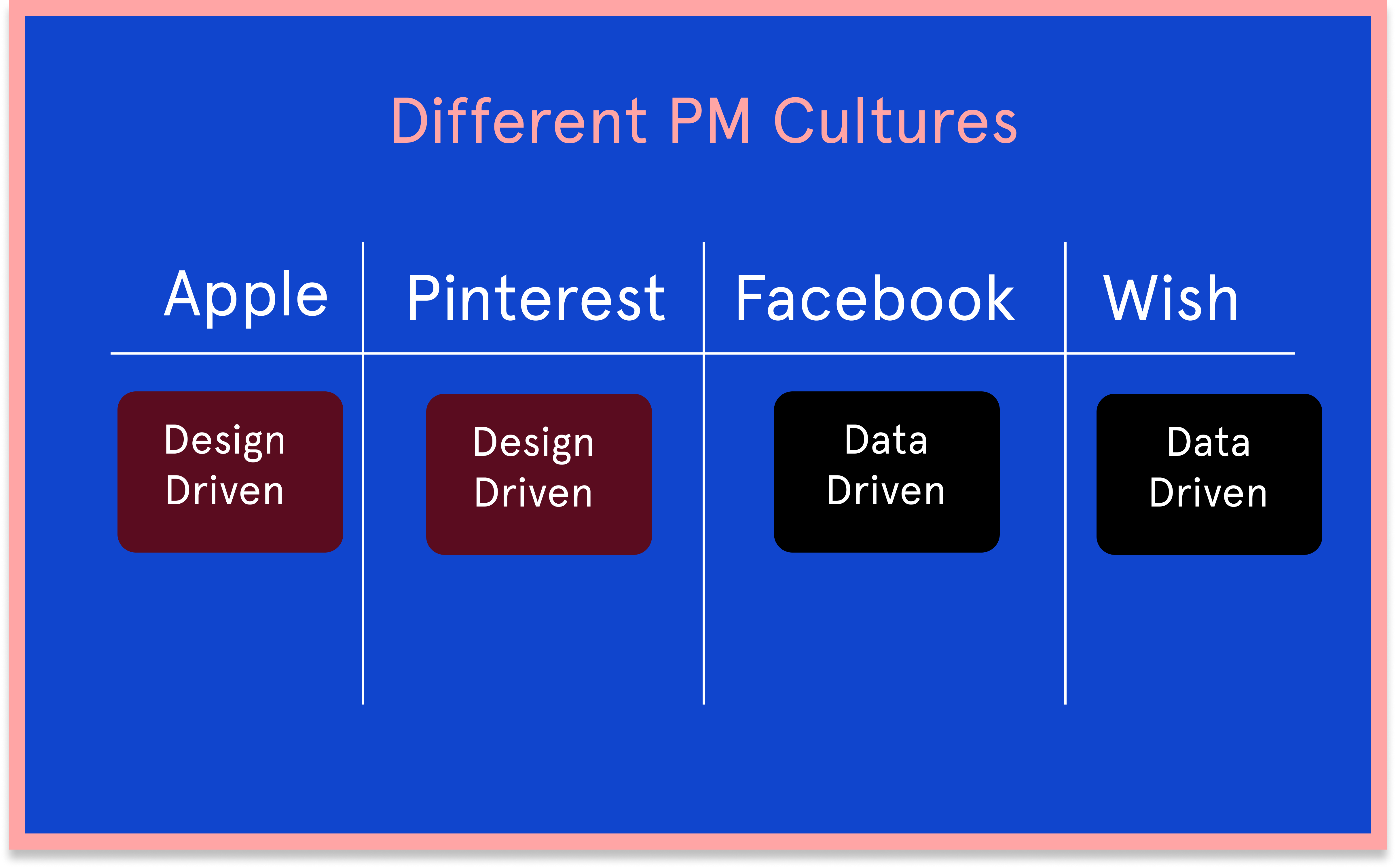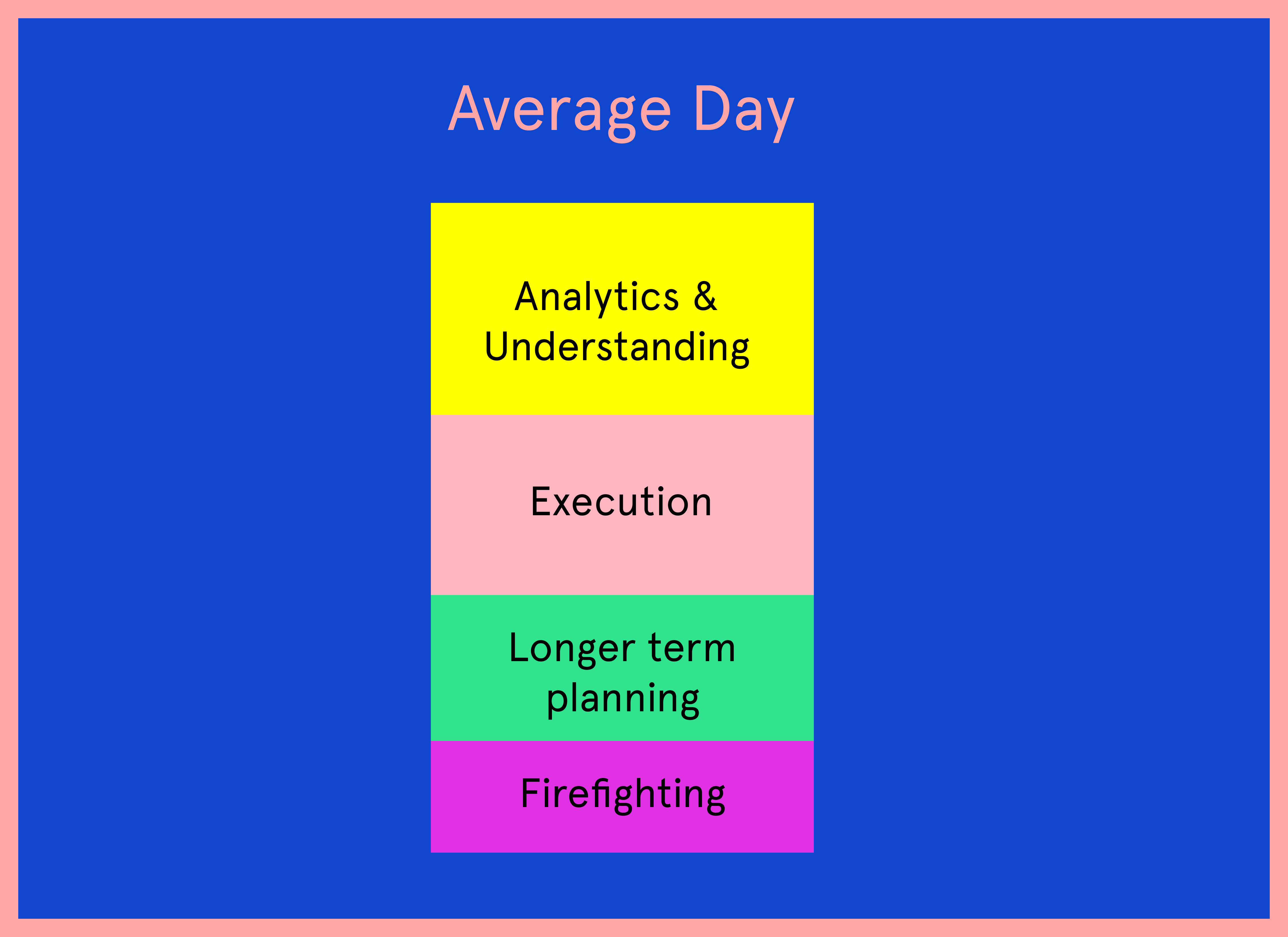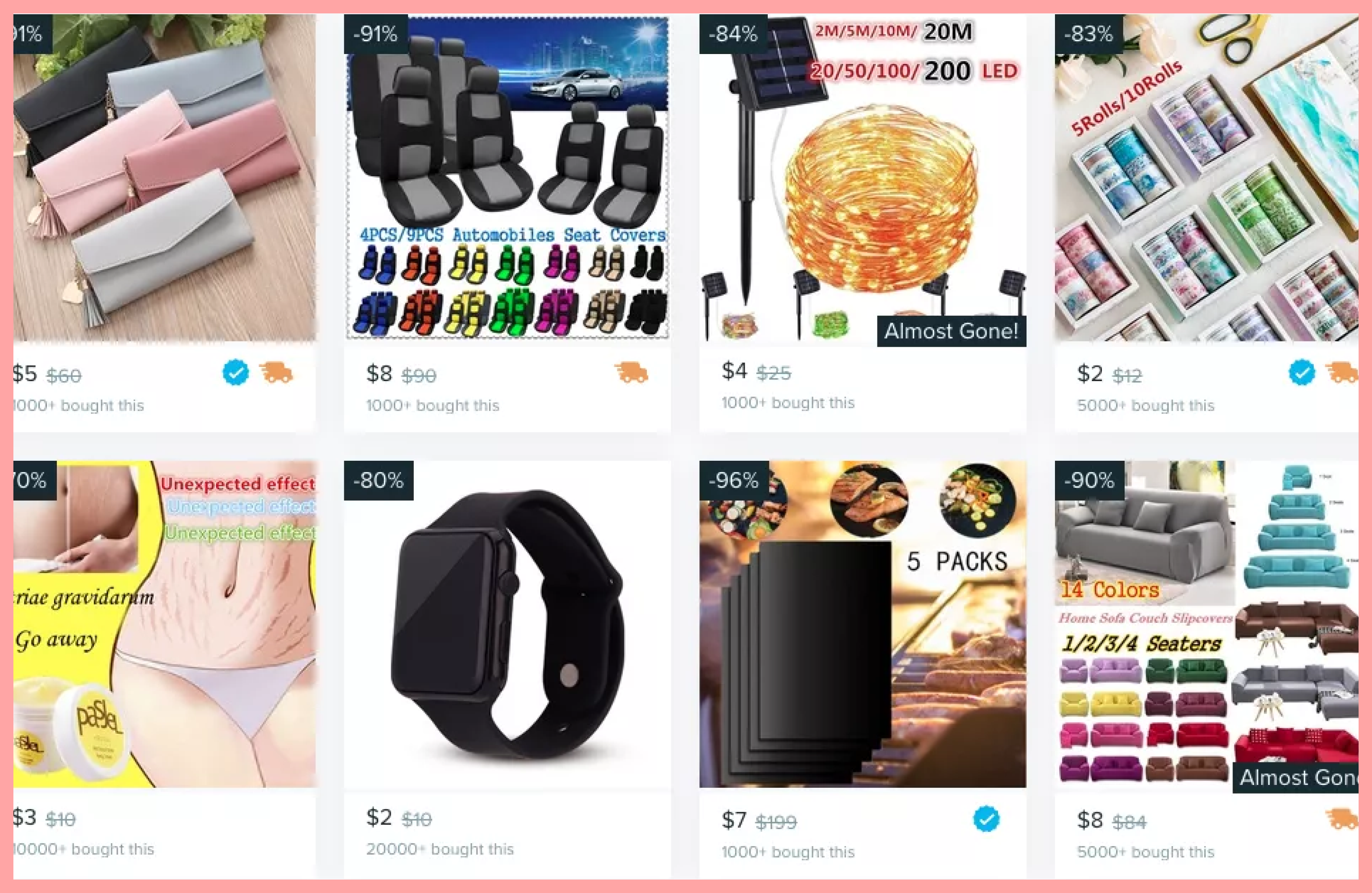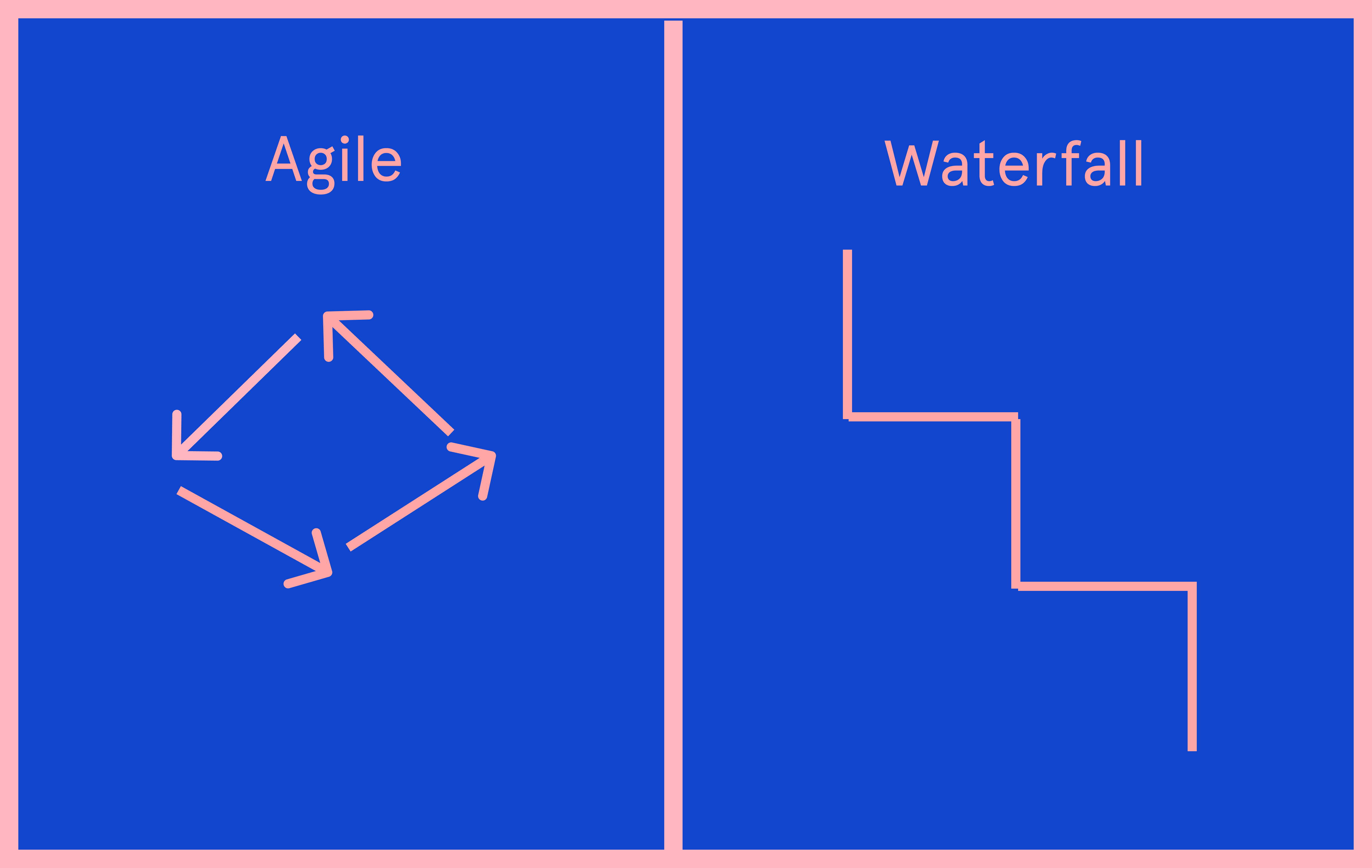Kevin Ma is a Product Manager at Wish, responsible for their consumer navigation across app & web used by 100MM people monthly.
Kevin also transitioned from growth marketing to product management - so I made sure to ask him about that too. Hope you enjoy this interview.
For context, Wish has a very data driven culture. Some other companies have a more design driven culture (like Pinterest). And you can kind of gauge that when you’re interacting with the product as well as just get a feel of the company culture.

My work is mainly broken down into 4 pieces. The first piece is based on understanding. So understanding how the company is doing from an analytics perspective (by examining our metrics) and how our experiments are going (A/B testing). This is about 30% of my role.
The second big piece is collaboration with different teams to execute on current projects. Companies nowadays all follow an agile development process which means that you’re collaborating with engineering, design, marketing partners much more closely. This is in contrast to what was often the case before, where communication was less frequent and based on a waterfall approach.
In the waterfall approach, you’d write a PRD, then pass it down to design who’d work in for 6 months, and then it’d be passed to engineering and so on.
So this is around 30-40% of my day to day - having discussion with different teams, figuring out the different technical tradeoffs, and moving forward there.
Third is vision and planning. This takes around 10-20% of my time. And that has to do with focusing on defining our roadmap for the longer term. For instance, as a team we know what to work on for the next month, but what about for the next 6 months? This requires planning because you don’t just focus on micro metrics but think about where the company wants to be a few years from now.

Finally - and you can’t get away from this - I also need to just do firefighting from time to time. This is about 10% of my role. As companies and software get more complex, things break. Often in ways you don’t expect.
For example, Wish is an app operating in 160 countries. There will be days where we get random legal requests from different countries and it might be my team’s job to figure out a solution.
I really enjoy working with other teams - so the engineers, designers, and marketers. When you work together with a group to tackle a problem, with people from many different backgrounds, you’re able to have much more interesting discussion and come up with much more creative solutions than you would on your own. And you’re also learning much more.
At a high level, these discussions force us to work cross-functionally to solve hard problems.
And something that’s interesting is that before, as a marketer, the solutions that I had to come up with did not need to involve analytics or engineering. Now, as a PM, all discussions do contain these elements and that’s something I enjoy.
I don’t enjoy documentation. In general, whenever you’re tackling a complex problem, you have to make sure to document it in as much detail as possible. Because if you don’t and say a year from now your team or another team needs to tackle a very similar problem, they won’t have any resources to look back on. And that’s a huge waste.
It’s important that people are able to understand why decisions are made the way that they are, because it’s probably going to affect their work in some sort of way. And that’s why documentation is necessary.
So the actual discussion that precedes the documentation and the different decision making we have to do is really fun. But the actual act of having to write it down is not as fun. But it’s necessary if you want to build a product that lasts a long time and is high quality.
As a product manager, you’re not expected to write code. However, having some understanding of how technology products are structured - for instance, how the lego pieces all fit together and why they’re put together that way - is quite valuable.
When you work together with a group to tackle a problem, with people from many different backgrounds, you’re able to have much more interesting discussion and come up with much more creative solutions than you would on your own. Kevin Ma
And what I mean by that is understanding that an app or website is composed of different components and that there is a reason behind why a certain structure is used, is important.
On top of Computer Science, I’d say that having an understanding of analytics is also valuable. Understanding how a relational database is structured is important. But knowing how to write a super complicated SQL query is not always expected. So as long as you have a solid higher level understanding of what’s going on, you’re fine.
I think it depends from role to role and the company. At Apple, for example, PMs are not expected to be technical at all. You need to be able to have a design and if anything a marketing sense to be able to execute daily.
At Google, all PM interviews actually come with a technical interview, so you’re not expected to be able to code, but you’re expected to be able to have complex, technical conversations with engineers.
Personally, I find that having some level of technical understanding and knowledge is valuable. So you’re able to help engineers come up with solutions that fit the current architecture of the product.
I transitioned into Product Management almost by accident. It was never my plan to be a PM.
Taking a step back - what really excites me is understanding people and influencing their behaviors. That’s what I was excited about when I was doing marketing & user related research.
The only change for me going from a growth marketing role to a product management role is that I get blamed for a lot more things! If anything breaks, it becomes my fault or responsibility.
So that’s interesting. And I do want to highlight in that specific case, it doesn’t matter what kind of a PM you are - B2B or B2C - the fundamental thing that makes a great PM is the interesting in understanding people and understanding new clients, and also the excitement in being able to provide those individuals a better product experience.
I am the product manager for the consumer app and the consumer website. I’m responsible for structuring a user’s shopping experience - so, for example, what’s the first thing you see when you open the app? If you click on a product, what type of information pops up? When you search something, how do we decide what products to show? How much detail to add?

And all of this varies based on different demographics, different countries, different income levels.
These are all things I focus on.
I think that behavioral psychology is really important for a consumer PM and for understanding consumer acquisition flows. If you look at B2B, it’s much more about sales and partnerships.
But for consumer, a lot of it just goes back to understanding why people behave a certain way. In fact, I find that a lot of the intro to behavioral psychology classes I took in college to be extremely relevant to the work I do. Certain books such as Freakonomics and Predictably Irrational are quite valuable in helping us as PMs move forward every day.
An additional thing I want to mention is that as we move towards a more mobile & software based world, a lot of this is also heavily based on A/B testing and data.
Almost every experiment we conduct is based on an A/B test. And that’s a big part of how we understand why users behave the way they do and what is the most optimal user experience.
Both as a founder and as a PM at a reasonably small company (Wish has 1000 people), I’m able to satisfy that entrepreneurial bug.
When you become a PM at a larger company like Google or Facebook, you’re only focusing on a very small piece of the pie given that there’s a lot of people and resources at those companies. But personally what I find very exciting is to tackle challenges that are much bigger, more complex, contain many more variables, and I find this to be quite similar to being a founder.

When you’re a PM at a smaller company, you’re not just solving one problem -- you have to take a step back, figure out the direction that the company is heading in, and all the steps that you need to take to get there.
I think that’s awesome. The other thing that’s similar to being a PM and founder is that you’re forced to not only think from a technical perspective, but also from a design perspective, a legal perspective, an analytics perspective, etc. And I really enjoy that.
------If you enjoyed this interview, feel free to reach out to Kevin on Linkedin. I also write a weekly newsletter containing new interviews or case studies. I'd appreciate it if you signed up for it below. Cheers!
Some people call it a newsletter - I call it a good time. I write about tech careers and how you can get ahead in yours. It’s my best content (like this case study) delivered to you once a week.